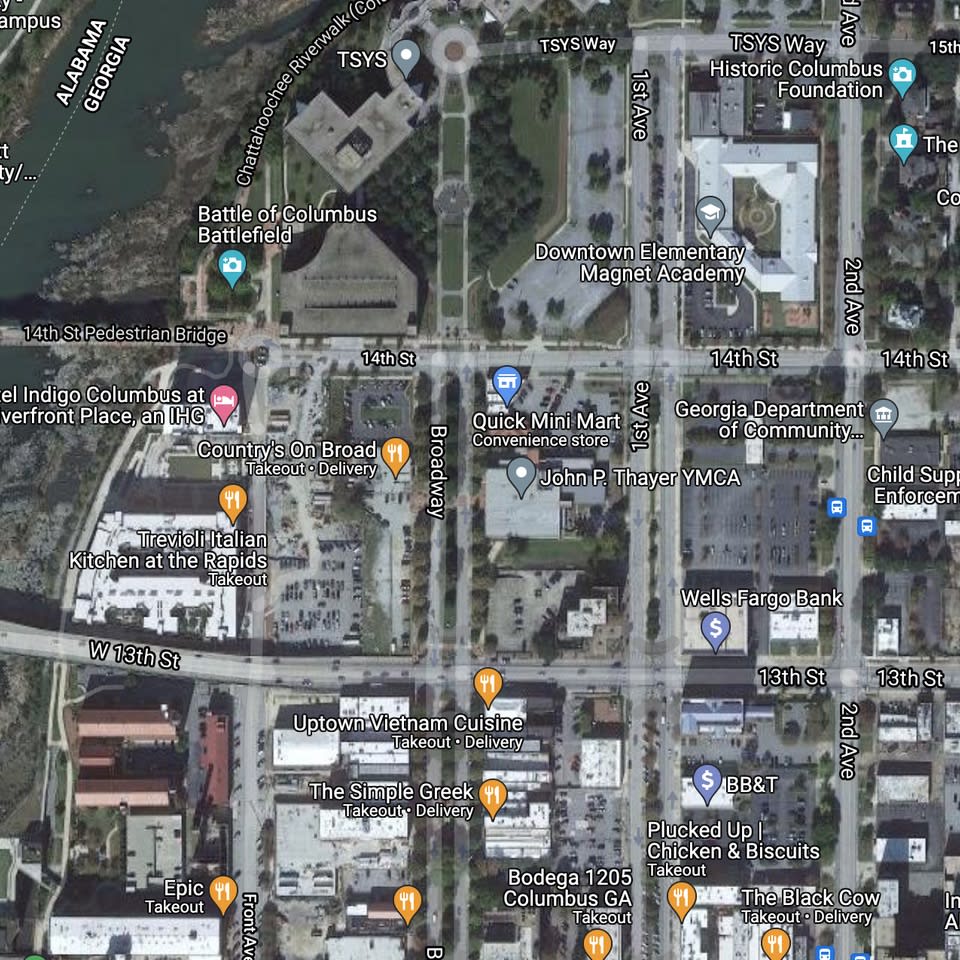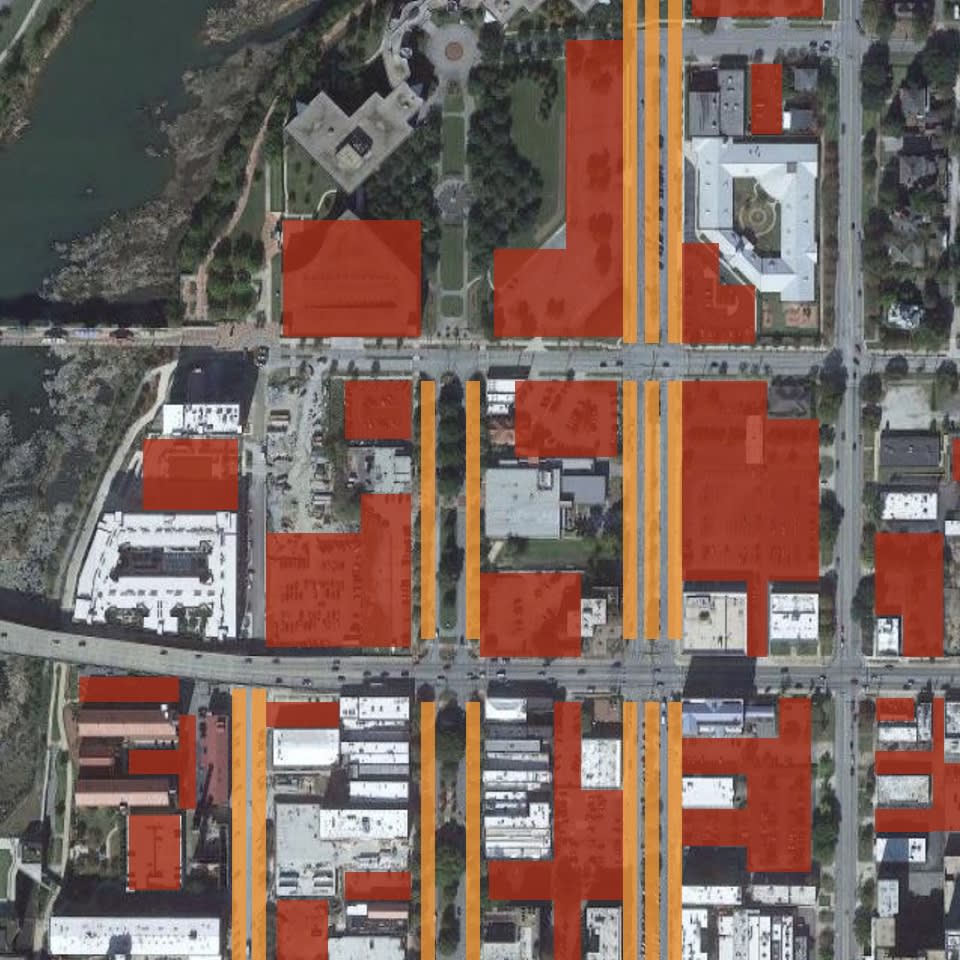
Parking lots, our nationwide addiction
The average American is suspicious of, if not hostile to, public transportation spending. Sometimes these feelings are practical concerns based on past failures, and sometimes they’re ideological. But that opposition all goes out the window once we discuss parking lots.
Joe Cortright of Strong Towns and City Observatory published this satirical blog post recently: Where We Embrace Socialism in the U.S.: Parking Lots. It responds to accusations that the newest federal spending program is un-American because it’s “socialist.”
That’s not accurate, of course. Socialism is well-established in the U.S., at least for car storage—something that is near and dear, certainly to Republicans. You think otherwise? Before you denounce socialism, Senator Rubio, consider this perspective.
Comrades, rejoice! In the face of the counter-revolutionary, neo-liberal onslaught, there’s at least one arena where the people’s inalienable rights reign supreme: parking.
By a coincidence of timing, a few days later my local newspaper reported that our city council has approved $52 million to help fund a new parking garage.
Columbus Council unanimously approved a modification request Tuesday for additional TAD [Tax Allocation District] funds to support the construction of a shared underground parking facility and “certain public infrastructure improvements,” according to the agenda item, for Riverfront Place, a 7.5-acre, mixed-use development by the Bradley Company.
Last March, the council approved $38 million in TAD funding for the project. On Tuesday, the council approved an additional $14 million.
I’m not especially knowledgeable about this project, and I’m sure that it must have some benefits that justify unanimous approval and $52 million of public funding. But it also seems to support Cortright’s point. We love it when our government spends money on parking. This particular story may be local, but it’s one of many identical stories that happen regularly throughout our nation.
To put this story in context, here’s the area they’re talking about in Google Maps’ satellite imagery:
And here’s what it looks like with all of the existing parking spaces highlighted. Parking lots are red, and on-street parking is orange:
This is a quick-and-dirty, conservative depiction of the actual parking usage. One of those red rectangles is a multi-story parking garage, and at least one of the buildings has a parking deck underneath it, which I did not highlight.
Something else that the satellite caught, and which is not abnormal: about half of the parking space is not being used.
Contrast these facts with our city’s latest parking garage project, and it’s obvious that something is off, like we’re living in two different realities. In a town where parking lots consume half of the land, and where half of those spaces go unused, how do we need more of it? How are our public economic development funds necessary to subsidize this? If parking lots really did contribute to our economy, then it seems like our coffers should be overflowing by now, considering how many of them we’ve already built.
I recognize that there are probably nuances to this project that I’m ignorant of. I’m sure someone can list the benefits it will bring, why this parking garage definitely will justify the tens of millions of dollars it costs to build, even when other parking doesn’t. But whatever those details are, they would have to be really compelling to outweigh what I’m seeing in the big picture.
This pro-parking mindset we see across our nation is the mindset of an addict. When you’re addicted to something, then you can never get enough of it. The more of it you consume, the more you desire it. Even if you begrudgingly acknowledge its downsides, you can’t help yourself from rationalizing it anyway: “just one more parking lot, and I’ll be good,” “maybe parking lots are bad in some ways, but I really need this one,” and so on. Like an addict, we always think we need more parking spaces.
Now, to connect this back to the topic at the beginning of the post, we know how quickly the mood would change once we talk about subsidizing almost any other transportation project. We’ve all seen what happens as soon as we try to fund bike lanes or bus routes.
And maybe biking and walking projects have their flaws too. But if you really do oppose monolithic, expensive, ideologically driven transportation spending, then bike lanes aren’t your enemy. Start by defunding parking lots. You’ll quickly realize how much Americans really do love big government transportation plans as soon as you try to take free parking away from them.


